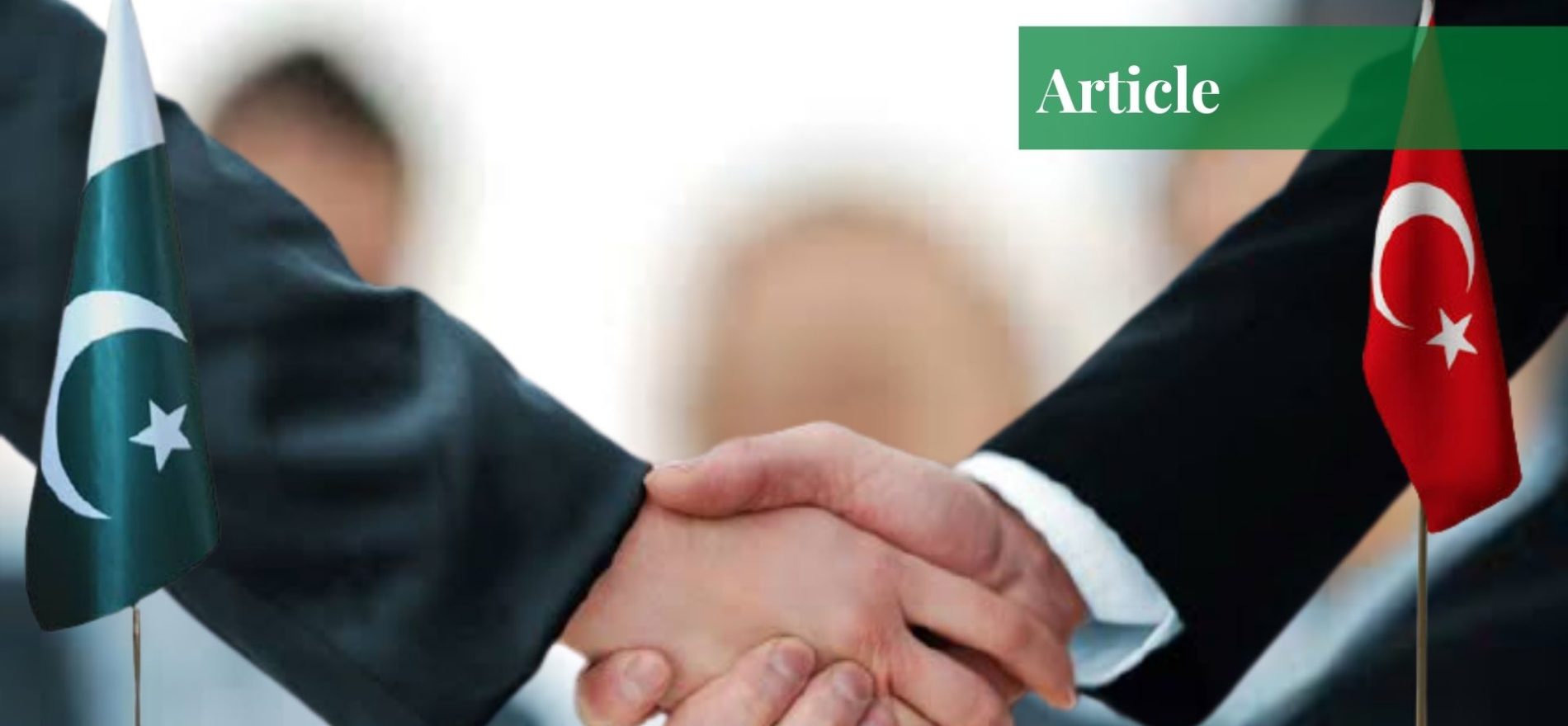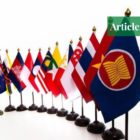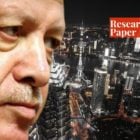Muhammad Abdullah is a law student at the University of London. He holds a profound interest in international relations and current affairs.
Introduction
Pakistan enjoys great diplomatic relations with a few countries namely Bosnia, Turkey, and China. Turkey formed diplomatic relations with the Islamic Republic of Pakistan in 1947, right after it came into being as the then-largest Muslim country in the world. The cultural, geopolitical, and religious links were a few of the reasons for Turkey’s support for Pakistan. Turkey was one of the first countries to recognize Pakistan when it came into being. The history of Pakistan-Turkey relations is a story of concern, cooperation, and support.
To this day, the sentiments of brotherhood between the Pakistanis and the Turks are as strong as ever; they manifest themselves in the Pakistan-Turkey relations. Muhammad Ali Jinnah, the first Governor-General of Pakistan, is thought of highly and honored in Turkey, having a major road of Ankara named after him—the Cinnah Caddesi. Similarly, the Ataturk Avenue in Islamabad is a tribute to Kemal Ataturk, the founding father of the Republic of Turkey. These bilateral brotherly Pakistan-Turkey relations, however, find their roots in history long before the two were independent states.
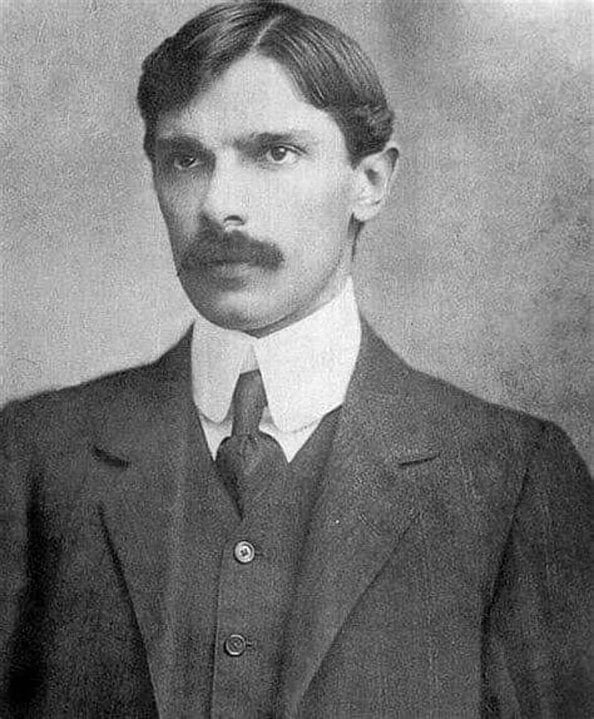
Cultural, Religious, & Geopolitical Links
During The Great Seljuq conquest, Turkey became a Turkic-speaking country. Although Pakistan is not a Turkic-speaking country, Chagatai Turkish – mainly spoken by the Mughals – has strongly influenced the regional languages of Pakistan, particularly Urdu. Urdu has many words that are similar to the Turkish language of the Mughals. Even the etymology of the word “Urdu” is believed to trace back to the Mughal period and was coined by the famous poet Mashafi.
In addition to the rich languages of the two countries, the cultural influences of Turkey and Pakistan are also believed to have existed for several centuries. When the Turkic and Persian people ruled most of the areas of the Middle East, South Asia, and Central Asia, all these regions were closely affected by cultural influences. Even the cuisine is seen to have some similarities, and there are common designs of clothing worn due to the shared origins of Central Asia.
Moreover, the two countries share a common religion, Islam. With around 99% of the people in Turkey being Muslims, according to the Turkish government, and about 96% of the population being Muslims in Pakistan, a religious unity is sure to be seen. Strong traditions of Sufism exist in both countries, and the religious ministers frequently contact each other.
Turkish War of Independence
The support of the Muslims of the subcontinent in the Crimean War can be rightly dubbed as the start of the modern-day relations between Turkey and Pakistan. As the Ottoman Empire was rapidly declining, the Muslims of the northwestern British Raj fully supported it, both financially and politically. Moreover, after the First World War, precisely during the Turkish War of Independence, they stood by the people of Turkey and supported their demand for independence.
In order to preserve the Turkish caliphate, the Muslims of the subcontinent launched the Khilafat Movement. Efforts were made to ensure that the territorial and spiritual value of the Turkish Sultan remained unabridged. The Khilafat Movement made several appeals to the British government to save Turkey from total disintegration and managed to collect an outstanding amount of funds for their support. The funds were used to pay the army.
With the help of the army, Mustafa Kemal Atatürk succeeded in dislodging Greek forces from Turkey in the year 1921. He was supported and applauded by all the leaders of the All India Muslim League. After finally emancipating Turkish territories from the Greeks in 1922, he finally declared Turkey an independent republic.
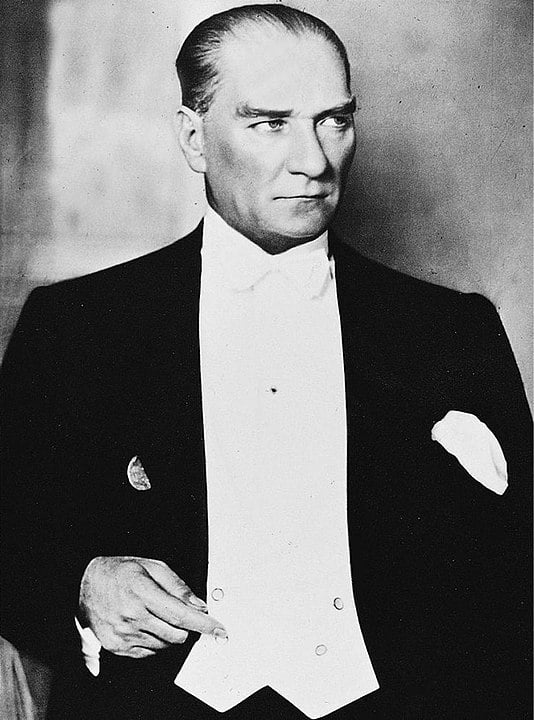
After independence, revolutionary changes were made in the state, such as a new education system, a new lifestyle, and the required development in all fields, to come at par with modern Europe. These actions were highly praised by Quaid-e-Azam. “Mustafa Kemal Ataturk was the foremost figure in the Muslim East. In Iran and Afghanistan, in Egypt and, of course, in Turkey, he demonstrated to the consternation of the rest of the world that Muslim nations were coming into their own. In Kemal Ataturk the Islamic world has lost a great hero,” said Jinnah.
Pakistan-Turkey Relations Post-1947
Turkey was one of the first countries that Pakistan formed diplomatic relations with. When Pakistan introduced its currency – rupee – it was Turkey that had printed the rupee bills in the initial months. Turkey supported Pakistan in developing new policies, just like Pakistan had in Turkey’s war for freedom. The two formed strong diplomatic and military relations quickly after Pakistan came into being.
On the special instructions of Quaid-e-Azam, Malik Feroze Khan Noon visited Turkey in December 1947 and said, “Pakistan is now two months old, and in the near future, the two brotherly countries are going to establish close cultural, commercial, and political relations.” When the first Turkish ambassador was appointed to Pakistan in 1948, Jinnah showed great expectations for the two countries in the years to come and appreciated the struggle and the courage of the Turks.
In 1954, the Turk-Pakistan Joint Communique was issued together in Ankara and Karachi, the contents of which declared that the two countries would adopt more viable mechanisms to ensure closer cooperation in cultural, political, and economic departments.
Moreover, Iraq and Turkey laid down the foundation of the Baghdad Pact for mutual cooperation in the departments of security and defense. Pakistan was reluctant to sign the pact, not wanting to undertake even further military commitments in the Middle East. Ayub Khan was invited to Turkey to discuss the matter with Prime Minister Nuri of Iraq and Turkey’s Prime Minister Adnan Menderes and was finally convinced to sign the pact of mutual cooperation. The pact later bore fruit in providing essential security and defense of member states.
With Iran being the third partner, Pakistan and Turkey started work on the construction of the microwave link between the three cities—Ankara, Karachi, and Tehran. These three cities were interlinked with the help of a rapid communication system, and the project was engineered by the Central Treaty Organization (CENTO), which also provided the equipment for the project.
Turkey’s Stance over the Kashmir Issue
Even in the early sixties, the Turkish leaders made clear public statements that supported Pakistan on the issue of Kashmir. In October 1966, the Foreign Minister of Turkey made a plea towards the UN General Assembly and demanded that they solve the Kashmir dispute in light of the Security Council resolutions. Moreover, in 1999, the Turkish government supported the Lahore Declaration between Pakistan and India, whose purpose was to give an appropriate ground to solve major disputes.
In addition, the Turkish ambassador spent a week in Muzaffarabad, the capital city of Pakistan-administered Kashmir, in order to show solidarity with the Kashmir cause. President Recep Tayyip Erdogan clearly expressed his views and stated that Turkey stands with Pakistan on the Kashmir dispute. This statement by Erdogan, signifying the strength of the Pakistan-Turkey relations, caused opposition from India.
Pakistan–Turkey Aid Exchange
In the horrific aftermath of the Kashmir earthquake of 2005, Turkey showed solidarity with the affected people. The Turkish aid package for Pakistan had $150 million for the people affected by the earthquake. Moreover, Kizilay—the Turkish Red Crescent—constructed a mosque in Azad Kashmir for the affected people.
For the victims of the 1999 earthquake in Turkey, Pakistan stepped up and sent two planeloads of relief goods. The goods included medicines, blankets, and tents. Moreover, doctors and trained medical staff were also sent to aid the quake-stricken people. Moreover, after the Van earthquake of 2011—which resulted in over 600 casualties—Pakistan’s Red Crescent Aid Society provided aid of $100,000 to the people of Van.
The current trade volume between Turkey and Pakistan can be increased from $899 million to $10 billion with the help of effective economic strategies. Both Turkey and Pakistan can prove to be vital to each other in the future if the coming governments take the appropriate steps for the betterment of both countries in the departments of health, education, trade, and economy.
If you want to submit your articles and/or research papers, please check the Submissions page.
The views and opinions expressed in this article/paper are the author’s own and do not necessarily reflect the editorial position of Paradigm Shift.
